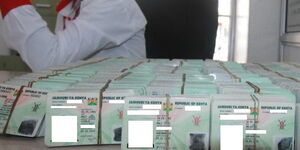Treasury Cabinet Secretary John Mbadi on Sunday revealed that his ministry will require multinationals to explain why they are opposed to the introduction of eco levy.
In an interview with Citizen TV, the CS noted that the eco levy was aimed at boosting responsible behaviour by manufacturers in preserving the environment.
He revealed that when the levy was introduced earlier this year, the multinationals were up in arms opposing the 10 per cent imposition on imported goods threatening to leave the country.
"They will tell us why they oppose us because you know, they are in business but we also have an interest as a country. This country is not a dumping place," Mbadi emphatically stated.
"We are saying that if you are injurious to the environment, then you must pay for helping make good the harm that you have caused."
The CS further assured the public that concerns raised by Gen Zs during the protests would be considered. For instance, concerns on eco levy being applied to bread packaging and sanitary pads would be taken into account.
"In Eco Levy, we will target those areas that will not affect the common mwananchi (citizens)," he told the press.
"Eco levy has some meanings; we will just make sure that they are levied on those items which pollute the environment."
During the public participation process, the multinationals including a beverage maker argued that the eco levy would create a volatile environment.
That, in return, would lower investor trust into Kenya and affect their strategic planning.
In the rejected Finance Bill 2024, the Treasury had extended the 10 per cent eco levy to both imported goods and locally manufactured plastics.
They further lamented that the levy, if implemented, it would be a double taxation for the industry players.
During his interview, the CS noted that the revival of 49 amendments from the Finance Bill 2024 were already in the works after discussions reduced the number of amendments from the earlier proposed 53.












